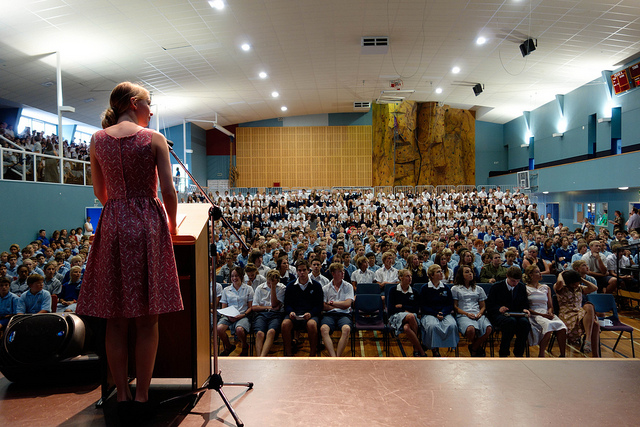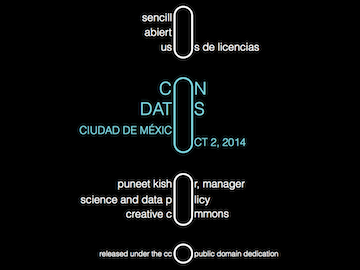Creative Commons policies grow in New Zealand schools
mardi 7 octobre 2014 à 02:09
Bethlehem College Preso / Locus Research / CC BY-SA
Last month, I had the honour of providing a keynote address and two workshops at a teacher conference at Northcote College1, on the North Shore of Auckland, New Zealand.
Like many schools, Northcote is in the process of developing an overarching digital citizenship policy for staff, students, and the wider community. This policy is likely to include – alongside other issues like safety, privacy, research and integrity – a commitment to Creative Commons licensing.
If Northcote College does adopt a Creative Commons policy, they will join between fifty and one hundred New Zealand schools that have decided to formally give permission for teachers to share resources using a Creative Commons licence, with a preference for CC BY and CC BY-SA.
The policy is designed to address the fact that, under Section 21 of the 1994 Copyright Act, the first owner of copyright works made by New Zealand teachers in the course of their employment is their employer – namely, the schools governance board, known as the ‘Board of Trustees’ (BoT).
This means that teachers who share resources they make are legally infringing the school’s copyright – even when they are sharing with other teachers in the New Zealand state education system.
We’re advocating two solutions to this problem. First, we think every school in New Zealand’s pre-tertiary education system – all 2,500 of them – should pass a Creative Commons policy. This policy allows – and encourages – teachers to share their resources with other teachers under a Creative Commons licence.
Second, we think that teachers should adopt practices of finding, adapting, and sharing open content into their workflow. This will give teachers more confidence and flexibility when re-using third-party resources, and provide more resources for other teachers to build on and reuse.
We’ve been working at this for a couple of years now, spreading the word to the many groups working in the sector, including teachers, principals, Boards of Trustees, unions, disciplinary associations, public agencies, and other NGOs.
It’s been a long campaign, but we’re starting to make real progress. We’re giving an average of forty talks and workshops per year to the education sector, and we’re currently looking for ways to scale this work to meet the needs of every school in the country. This will become increasingly important as new resource sharing platforms – such as the crown-owned Network for Learning’s Pond – begin to take off.
The other challenge is to follow the lead of other CC affiliates, such as Poland, and help open up works produced or contracted by the Ministry of Education. There are signs that more of these resources will be openly licensed.
The adoption of open policy in schools coincides with similar moves in the local heritage and research sectors, and follows the continuing integration of CC licensing in central government. While there is still plenty to be done, it appears as if open licensing is on the verge of becoming mainstream across New Zealand’s public institutions – which is definitely good news for the global commons.





